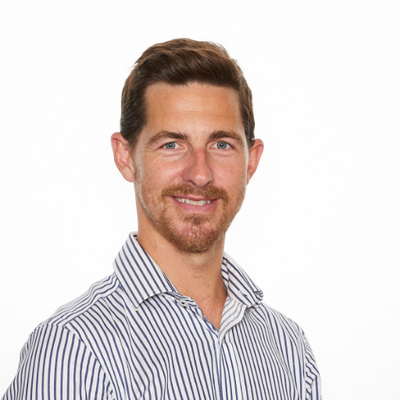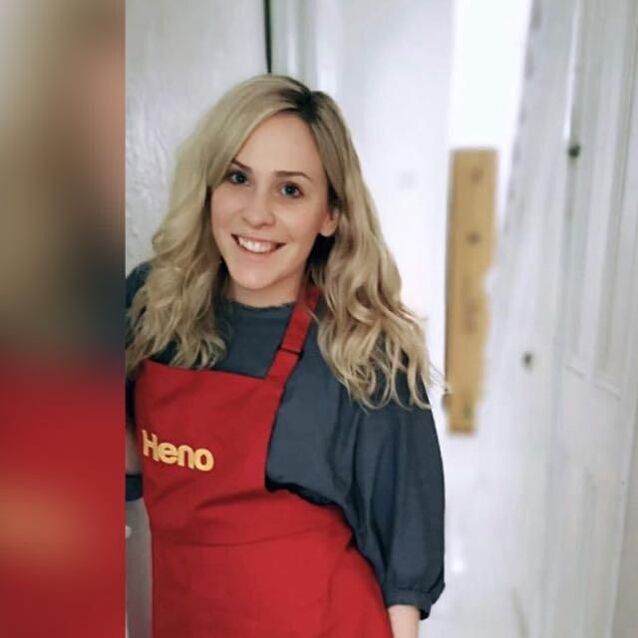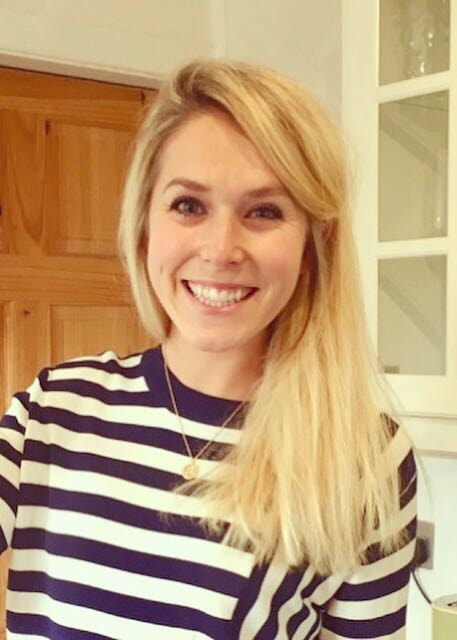|
Dr Tom Cromarty Editor Interests: Paediatric Emergency Medicine, Medical Engagement and Leadership, Simulation, Quality Improvement, Research Twitter: @Tomcromarty |
Welsh Research and Education Network
WREN BlogHot topics in research and medical education, in Wales and beyond
Dr Celyn Kenny Editor Interests: Neonates, Neurodevelopment, Sepsis, Media and Broadcasting Twitter: @Celynkenny |
|
Dr Tom Cromarty The term “Burnout” has become somewhat of a dirty word in the healthcare lexicon over the last few years. The insinuation that healthcare staff have somehow failed to build enough resilience or resourcefulness to manage the stressors of life on the front-line. The concept of “front-line” comes from war battlefields and it’s no co-incidence that this metaphor is used in healthcare. Soldiers get diagnosed with PTSD, whilst healthcare professionals suffer burnout. Both of these have at their core the issue of “Moral injury”. If doctors were “in it for the money” then I’m pretty sure they would be astute enough to pursue another line of work. Caring for patients and their families is a vocation for most doctors, or at least it started off that way at some point in the “life choices” decision making process. However, when doctors are not able to deliver the high standards of care they intended for a variety of reasons, this takes a toll on personal wellbeing. The symptoms of burnout are really a “signal” of a healthcare system that is failing to look after its assets. If we want compassionate, engaged and highly skilled doctors leading the charge on the frontline then we need to provide the working environment to facilitate it. This starts with senior leadership recognising that >50% of doctors are experiencing these symptoms and they “Cannot give what they don’t have”! Many organisations now recognise the urgency of the situation and are starting to offer support. However, there are a number of skills which we can develop as individuals to equip us for “combat in the healthcare battlefield”. I have looked up to Dr Mark Stacey for a number of years. An obstetric anaesthetist and human factors expert, he has put together a “Bakers Dozen” of skills. Written as a prescription to yourself, these can all be practiced and developed, in our quest for becoming “Anti-Fragile” (the opposite of fragile funnily enough). I have been lucky enough to hear this talk a couple of times, taking new learning points from it on each occasion. I would highly recommend contacting [email protected]and see the talk in person, but in the meantime here is a short summary of 'The Baker’s Dozen' by the legend himself; 1. Problems: challenge or threat? Do you view your problems as a challenge or a threat? From a practical (and physiological) point of view it is more useful to frame problems as a challenge (problem solving mode) versus a threat (fight/flight mode). This also means reflecting on your self-talk about life eg “life is unfair”, sadly we know that, we see proof of it on a daily basis. 2. Develop optimism skills even if you are a pessimist Having started out researching ‘learned helplessness’ (something many in the NHS will be familiar with, especially our patients), Marty Seligman has become a top optimism guru. His PERMA model (Positive Emotion, Engagement, Relationships, Meaning, Achievement) is helpful. I have also found the ‘Losada principle’ very useful - three nice things to balance/overcome one negative (unless of course if you’re in a long term relationship....). The PERMA Model: Your Scientific Theory of HappinessAlso, have your own mission statement and rehearse it daily. Mine is “today I am going to do the best I can for my family and the people I care for”. 3. Keep a gratitude diary What 3 things have you done well in the last 24 hours? I usually think about these on the way home from work, which sets me up to start the evening in a positive manner. How many of you when you get home complain to your partner? Flip it round – say or do something positive. 4. Do physical exercise (every day) Do not underestimate the benefits of regular physical exercise. Lack of time is an often used excuse, but do you have time not to exercise when you look at the range of benefits (decreasing risk of Alzheimer’s, improving mood, improved sleep and many others)? The 7 minutes exercise app is a great way of moving all your body parts without taking up too much of your time. 5. MEDITATE Probably the most useful skill I have learnt in the last 25 years – it has a whole range of benefits; improved concentration, focus and sleep. If you don’t do some form of meditation you are spending less time on your mental health than you are cleaning your teeth! The simplest meditation technique I have found is the four count breath technique also called box breathing. It only takes a minute – breathe in for a count of 4, hold for 4, out for 4, hold for 4 – do 4 times – perform when you feel that acute pressure coming on and practice every day – teach it to everybody! (Even the Navy Seals are taught it!) 6. Become a stress management expert Imagine a bucket, while at work fill it with the stressors of the day, at the end of your shift find a trigger (for me it is unlocking my bike) to empty the bucket. Now you are going home with an empty bucket ready to be filled with the stressors of home. Set a second ‘empty bucket’ trigger (like brushing your teeth before bed) to set you up for the next day and of course... “Scientists have discovered a revolutionary new treatment that makes you live longer. It enhances your memory, makes you more attractive. It keeps you slim and lowers food cravings. It protects you from cancer and dementia. It wards off colds and flu. It lowers your risk of heart attacks and stroke, not to mention diabetes. You’ll even feel happier, less depressed and less anxious. Are you interested?” (see number 7) 7. Sleep! The above quote is from Matthew Walker’s recent book and if that hasn’t convinced you then I’m not sure that I will. Sleep – ignore it at your peril, it is possibly the most important performance enhancing agent available to you. 8. Ask for Help Never be afraid to do this whether you are a senior consultant or newly appointed trainee. 9. Deal with aggression Learning assertive skills is worth the effort particularly as there will always be conflict in our jobs. 10. Learn Learning is a fantastic skill that does not just teach us the skill – it also teaches us about learning – in particular how, as an expert, it is difficult to understand why the novice is struggling to learn the skill. 11. Make better decisions You could read the enjoyable and academic “Thinking Fast and Slow” by Daniel Kahneman or more readable “Decisive” by Chip and Dan Heath that teaches the WRAP model. In particular note the prepare for failure – we can do everything right in our job but bad things will still happen. 12. Avoid HALT in you and the people you work with Are you Hungry, Angry, Late or Tired? Avoid these factors in yourself and look out for them in your co-workers/friends/partners/ children. They will look out for HALT in you. The HALTcampaign, lead by Michael Farquhar and Guy’s hospital, is a model worth following. 13. Smile As you work through your day see how many people you can make smile. …..And there you have it.
These are all skills! And as such they will all get better after practice and less easy when neglected. Just get started and have a go at two or three of them. I have found the gratitude diary and sleep (earlier bed times) particularly useful in recent weeks and have seen benefits in my overall wellbeing. Mark reminded us that if you never meditate, you are spending more time cleaning your teeth than on your mental health. Some people say “We don’t have time for any of this” but the truth is “We don’t have time to neglect it”. If you want to be the compassionate, healthy, high performing doctor you always dreamt of, the remember “You can’t give what you don’t have!” Baker’s Dozen of Mental Toughness. Your stress management and resilience toolkit The Happy MD – Dr Dike Drummond Mission Statement: Revolutionize the quality of healthcare by improving the health, happiness, humanity and effectiveness of the people providing patient care. Physician Burnout Symptoms ZDoggMD – Moral Injury Reading List from Mark Stacey: Human factors and resilience Mastering Resilience in Oncology: Learn to Thrive in the Face of Burnout. Fay J. Hlubocky, PhD, MA. Miko Rose, MD, and Ronald M. Epstein, MD Practical Human Factor training Martin and Elaine Bromiley – “How mistakes can save lives” Decision making and brain training! Brain rules: John Medina The Decisive moment: Jonah Lehrer Decisive: Chip and Dan Heath Three books: three slightly different takes on human error Safety at the Sharp end: Rhona Flin Field guide to understanding Human error:Sydney Dekker Why hospitals should fly-much lighter than the above: Nance J. Mind management recommendations: The Chimp Paradox: Steve Peters (it works for the Sky cycling team) Search inside yourself: Chade Meng Tan (it works for google!) 10 % happier - Dan Harris- true life story with loads of practical advice-advice-done be put off by the title!
0 Comments
Leave a Reply. |
Editors
Dr Annabel Greenwood Categories
All
|





 RSS Feed
RSS Feed
